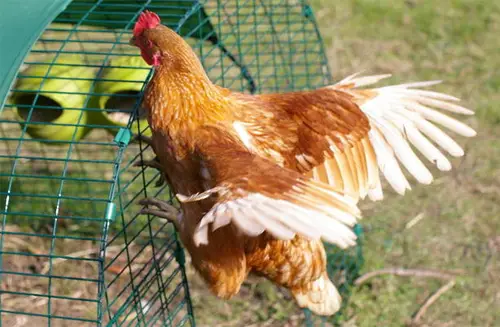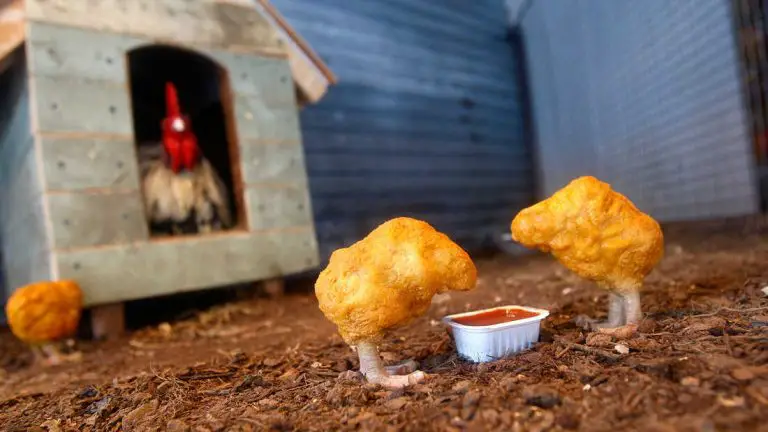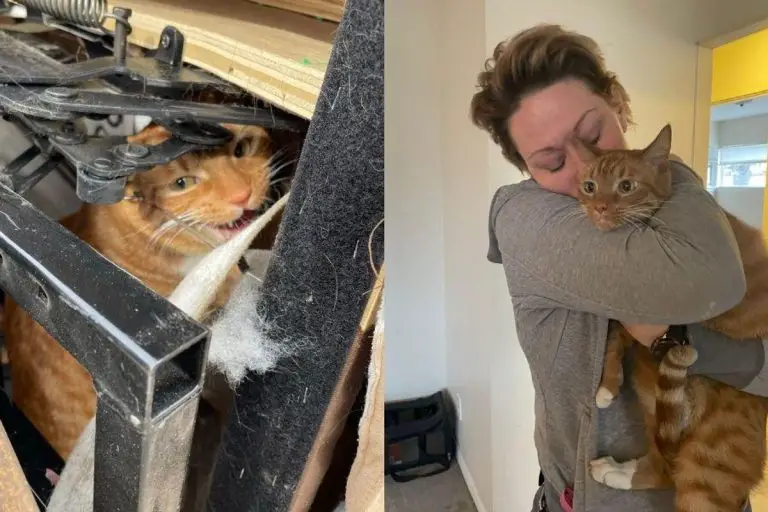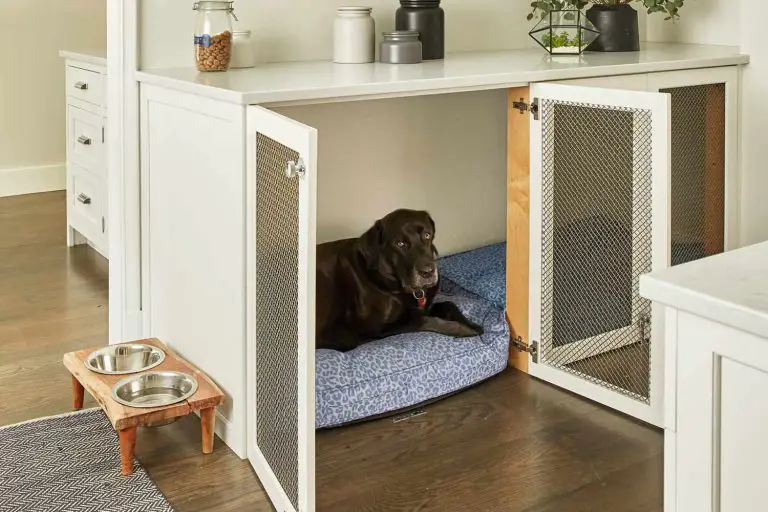Why Do Chickens Try To Escape?
Chickens try to escape due to their instinct for freedom and their urge to find more favorable conditions or resources. They may try to escape from their coop or enclosure because they desire more space, better food sources, or protection from potential predators.
Additionally, chickens may attempt to escape if they feel stressed, overcrowded, or neglected in their current environment. Seeking freedom is a natural behavior for chickens, as it allows them to engage in natural behaviors such as foraging, dust bathing, and exploring their surroundings.
By understanding the reasons behind their escape attempts, chicken owners can take steps to provide a more suitable and enriching environment for their birds.
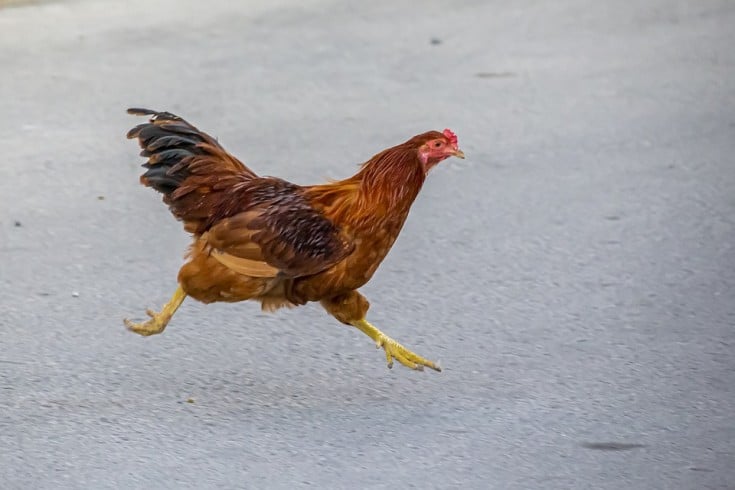
The Instinctual Nature Of Chickens
Chickens possess an instinctual desire to escape due to their natural inclination to explore and forage. Their urge to roam stems from their wild ancestors, prompting them to seek freedom beyond the confines of their coop.
Chickens, with their feathers ruffled and beady eyes darting, can often be observed attempting to flee their cozy confines. But why do these seemingly harmless creatures strive to escape? The answer lies rooted in their instinctual nature. Chickens possess a set of survival instincts that compel them to explore, roam, and satisfy their curiosity.
Let’s delve into the fascinating reasons behind their escape attempts.
Survival Instincts In Chickens:
- Territorial nature: Chickens have an innate need to establish their territory, which drives them to explore outside their usual confines.
- Seeking protection: Despite being kept as domesticated animals, chickens have retained their ancestral instincts to search for safe hiding spots to protect themselves from potential predators.
- Intuitive sense of danger: These feathered creatures possess an inherent ability to sense threats and perceive dangers lurking nearby, prompting them to seek alternative spaces.
Understanding The Urge To Explore And Roam:
- Curiosity-driven behavior: Chickens possess an insatiable curiosity about the world around them. Their desire to explore and discover new surroundings often leads to escape attempts.
- Intrinsic need for novelty: Chickens thrive on novelty and variety. The mundane environment of a coop may not always satisfy their innate desire for excitement and stimulation, driving them to venture beyond their enclosures.
- Seeking resources: Chickens are highly resourceful animals. They may explore unfamiliar territories in search of hidden treasures like food, water, and shelter.
The Role Of Curiosity In Escape Attempts:
- Satisfying natural instincts: Chickens are instinctively inclined to investigate their surroundings. Their escape attempts are driven by an overwhelming urge to quench their curiosity.
- Expanding social interactions: Chickens are social animals that enjoy bonding with their fellow flock members. Escaping their confinement allows them to explore new social interactions and expand their connections.
- Establishing dominance: Escape attempts can also be attributed to the natural pecking order within a flock. Outgoing chickens may try to assert their dominance by seeking new territories and challenging existing hierarchies.
Chickens try to escape due to their instinctual nature. Survival instincts, curiosity, and the urge to explore all play significant roles in their escape attempts. Understanding these innate drives can help chicken owners create enriched environments and reduce the likelihood of their feathery friends seeking freedom beyond their coop walls.
So, while their escape attempts can sometimes be worrisome, it’s important to acknowledge and accommodate the natural instincts that drive these adventurous creatures.
The Lack Of Fulfillment In Captivity
Chickens often attempt to escape due to the lack of fulfillment in captivity. Their natural instincts drive them to seek freedom and engage in behaviors suppressed by confinement. Understanding their needs and providing a stimulating environment can help minimize escape attempts.
Chickens possess an innate instinct to explore and roam freely in search of food, shelter, and social interaction. Being confined in a coop or enclosure denies them the opportunity to satisfy their natural desires, leading to various negative consequences.
The Consequences Of Confinement For Chickens
- Stress and frustration: Lack of freedom and stimulating environments can result in chronic stress for chickens, leading to behavioral issues and poorer overall wellbeing.
- Aggressive behavior: Confined chickens may display aggression towards each other, as competition for limited resources intensifies.
- Feather pecking: Without adequate space and activities, chickens may resort to feather pecking, a damaging behavior where they peck at each other’s feathers, leading to injuries and infections.
- Decreased egg production: Stress and frustration can negatively impact the laying patterns of hens, resulting in reduced egg production.
- Weakened immune system: Chickens kept in confinement are more susceptible to diseases and infections due to the close proximity and lack of natural environmental stimulation.
The Need For Mental And Physical Stimulation
Chickens are intelligent animals that require both mental and physical stimulation to lead fulfilling lives. Without appropriate outlets for their natural behaviors, they may exhibit signs of boredom, restlessness, and even depression.
- Environmental enrichment: Providing chickens with environmental enrichment, such as perches, roosting areas, and objects to peck at, stimulates their minds and promotes physical exercise.
- Access to the outdoors: Allowing chickens access to outdoor spaces, where they can forage for insects, dust bathe, and explore, enhances their mental and physical well-being.
- Variety in diet: Offering a diverse range of foods, including fresh greens and treats, encourages foraging behaviors and keeps chickens engaged.
- Social interaction: Chickens are social animals that thrive in the company of other chickens. Allowing them to interact with their flockmates promotes social bonds and reduces boredom.
The Impact Of Overcrowding On Behavior
When chickens are crammed into tight spaces, the negative effects on their behavior can be significant. Overcrowding diminishes their quality of life and ability to express their natural behaviors freely.
- Inhibited movement: Overcrowded conditions restrict chickens’ ability to move, stretch, and engage in normal activities, leading to muscle weakness and decreased overall fitness.
- Increased stress levels: Overcrowding creates a competitive and stressful environment, with chickens constantly vying for space, food, and water.
- Higher disease transmission: Close proximity and limited ventilation in overcrowded situations increase the risk of disease transmission among chickens, compromising their health and well-being.
- Reduced nesting opportunities: Limited nesting space may lead to hens laying eggs in undesirable locations or engaging in aggressive behavior to secure a nesting spot.
By recognizing and addressing the lack of fulfillment in captivity, we can improve the lives of chickens and promote their overall welfare. Giving them the opportunity to express their natural behaviors and providing an enriched environment benefits their physical health, mental well-being, and behavior.
Psychological And Physical Stress Factors
Chickens try to escape due to a combination of psychological and physical stress factors. Factors such as cramped living spaces, predator threats, and lack of stimulation can lead to feelings of fear and anxiety, causing chickens to seek freedom outside their enclosures.
Chickens have a natural instinct to explore and roam freely, so it’s no surprise that they may attempt to escape from their confinement. However, there are various psychological and physical stress factors that contribute to this behavior. Understanding these factors can shed light on why chickens try to escape and help us improve their well-being.
High Levels Of Stress In Captive Chickens:
- Lack of space: When chickens are kept in cramped enclosures, they experience stress due to restricted movement and limited access to resources.
- Overcrowding: When too many chickens are housed together, it leads to increased competition for food, water, and standing room. This can result in higher stress levels among the flock.
- Lack of social interaction: Chickens are social animals and thrive on interactions with their flock mates. When they are unable to engage socially, it can lead to feelings of isolation and distress.
Boredom And Its Effects On Behavior:
- Monotonous environment: If chickens are confined to a dull and unstimulating environment, they can become bored. This boredom may drive them to seek ways to escape and explore new surroundings.
- Lack of mental stimulation: Chickens are intelligent creatures that require mental stimulation to stay engaged and content. When they are deprived of mental challenges, they may exhibit restless behavior and attempt to escape their enclosure.
Health Problems Stemming From Confinement:
- Feather pecking and cannibalism: In crowded and stressful environments, chickens may resort to harmful behaviors like feather pecking and cannibalism. This can lead to severe injuries and even death within the flock.
- Reduced immune response: Stress weakens the immune system, making chickens more susceptible to diseases and infections. Confinement-related stress can impair their ability to fight off pathogens, resulting in compromised health.
By recognizing and addressing these psychological and physical stress factors, we can create better living conditions for captive chickens. Providing adequate space, enrichment activities, and opportunities for social interaction can significantly reduce the desire of chickens to escape and improve their overall well-being.
The Desire For Freedom And Autonomy
Chickens yearn for freedom and autonomy, constantly attempting to escape their enclosures. Curiosity, natural instincts, and the desire to explore drive their escape attempts, making it essential to provide them with ample space and stimulation in their environments.
Chickens are fascinating creatures with a strong natural inclination to be free-ranging. They possess an innate desire for freedom and autonomy, which often leads them to attempt escape from their confinements. Understanding this desire can help us better comprehend their behavior and ensure their well-being.
The Natural Inclination To Be Free-Ranging
- Chickens have evolved from wild jungle fowl, and their instincts to explore and roam freely still run deep within them.
- They are naturally curious creatures, constantly on the lookout for new opportunities and environments to explore.
- Free-ranging allows chickens to engage in natural behaviors like foraging, scratching, and dust bathing, which are vital for their physical and psychological health.
- The freedom to move allows chickens to establish their own territories, assert dominance, and engage in social interactions with their flock mates.
The Frustration Caused By Confinement
- Confinement in cramped spaces, such as small enclosures or cages, can cause immense frustration and stress for chickens.
- Lack of space inhibits their ability to exhibit natural behaviors and engage in physical activities, resulting in boredom and lethargy.
- Being unable to engage in normal social interactions can lead to aggression, feather pecking, and other detrimental behaviors.
- The restrictive environment can also impact their mental well-being, affecting their overall health and productivity.
The Implications Of Restricting Chicken Movement
- Limiting chicken movement not only restricts their access to natural behaviors but also affects their health and productivity.
- Restricted movement can lead to muscle weakness and decreased bone density in chickens, making them more susceptible to injuries and diseases.
- Lack of exercise and stagnant surroundings can also contribute to obesity and reduced egg production.
- Furthermore, the stress caused by confinement can weaken their immune system, making them more vulnerable to illnesses.
By recognizing and addressing the natural inclination of chickens for freedom and autonomy, we can create better living conditions for them. Providing ample space, opportunities for exploration, and a stimulating environment can ensure the physical, mental, and emotional well-being of our feathered friends.
Understanding their instincts and respecting their desire for freedom is a crucial step towards promoting a healthy and harmonious chicken-human relationship.
Escaping As A Form Of Problem-Solving
Chickens often attempt to escape due to their natural instinct for problem-solving. They may seek freedom from confinement, search for better food sources, or avoid predators. Understanding their motivations can help owners create safer and more enriching environments for their flock.
Chickens are remarkably intelligent creatures, often displaying impressive problem-solving abilities. When faced with confinement or unfavorable conditions, they will go to great lengths to escape their surroundings. Understanding the reasons behind their escape attempts can shed light on their remarkable intelligence and their need for a more fulfilling environment.
In this section, we will explore the intelligence and problem-solving abilities of chickens, the creative ways they attempt to escape, and how escape attempts can signal unhappiness.
The Intelligence And Problem-Solving Abilities Of Chickens
Chickens, contrary to popular belief, possess a level of intelligence that is often underestimated. They exhibit remarkable problem-solving skills that allow them to assess and overcome various obstacles. Here are some fascinating aspects of their intelligence:
- Cognitive abilities: Chickens have a surprisingly high memory capacity and can recognize familiar faces, both of their flock mates and humans. They can also remember positive or negative experiences, which contributes to their decision-making abilities.
- Tool usage: Chickens have been observed using tools in various situations. For instance, they can use objects such as sticks or rocks to reach food that is placed out of their reach.
- Adaptability: These feathered problem-solvers can adapt to new situations and learn from their experiences. They can quickly assess their surroundings, identify potential escape routes, and devise strategies to access their preferred areas.
Creative Ways Chickens Attempt To Escape
Chickens are resourceful creatures and will employ a wide range of tactics in their attempts to escape. Their determination and creativity never cease to amaze. Here are some of the ingenious methods they employ:
- Flight: While certain breeds may have their flight feathers trimmed to impede their flight capabilities, chickens can still manage to clear low fences or barriers through short bursts of fluttering wings.
- Squeezing through gaps: Chickens possess a remarkable ability to squeeze through surprisingly small openings due to their flexible bodies. They can maneuver through fences, gaps, or holes that appear too narrow at first glance.
- Digging and tunneling: Utilizing their strong claws, chickens can dig beneath fences or barriers, creating tunnels to access the other side. Their determination and persistence in this aspect are truly awe-inspiring.
How Escape Attempts Can Signal Unhappiness
It is essential to recognize that escape attempts from their surroundings can be indicative of chickens’ unhappiness or discontent. Their confinement, lack of stimulation, or unsatisfactory living conditions can prompt such behaviors. Here are the ways escape attempts can act as a distress signal:
- Boredom and frustration: Chickens require mental and physical stimulation to remain content. If they find their environment dull or monotonous, they may resort to escape attempts as a form of seeking excitement and enrichment.
- Inadequate space: Limited space can cause stress and lead to escape attempts. Chickens need ample room to roam and engage in natural behaviors such as pecking, scratching, and dust bathing. In the absence of adequate space, they may become restless and attempt to break free.
- Uncomfortable conditions: Extreme temperatures, poor ventilation, or lack of suitable nesting areas can create discomfort for chickens. They may try to escape their surroundings in search of more favorable conditions.
Understanding why chickens try to escape is crucial for ensuring their well-being. By providing them with sufficient space, mental stimulation, and comfortable living conditions, we can help minimize their urge to break free and create a happier and healthier environment for these intelligent creatures.
The Impact Of Environmental Conditions
Chickens may try to escape due to the impact of environmental conditions. Factors such as extreme temperatures, overcrowding, lack of food or water, and stress can lead to their instinctual response to seek freedom. These conditions push them to search for better living conditions elsewhere.
Chickens, like many animals, have a natural inclination for exploration. They often display behaviors that hint at their desire for freedom. But have you ever wondered why chickens try to escape? Let’s explore the impact of environmental conditions on their escape attempts.
Unsuitable Living Conditions And Their Effect On Chickens:
- Cramped spaces: When chickens are confined to small living areas, they may feel stressed and cramped. This overpopulation can lead to heightened anxiety and an increased urge to escape.
- Lack of shelter: Without proper shelter, chickens become susceptible to harsh weather conditions, predators, and potential harm. These stressors can trigger escape behavior as they seek safer environments.
- Inadequate food and water: Insufficient access to food and water can create a sense of scarcity and survival instinct among chickens. This may drive them to explore beyond their confined spaces in search of sustenance.
The Role Of Poor Ventilation And Lighting In Escape Behavior:
- Inadequate ventilation: Poor airflow and ventilation within chicken coops can result in a buildup of ammonia and moisture from droppings. This creates an uncomfortable and potentially harmful environment for chickens. Consequently, they may attempt to escape in search of fresher air.
- Insufficient lighting: Chickens require sufficient natural or artificial lighting to regulate their internal body clocks and maintain proper circadian rhythms. Inadequate lighting can disturb their sleep patterns, causing stress and restlessness, which may lead to escape attempts.
The Connection Between Temperature And Escape Attempts:
- Extreme heat: Chickens are susceptible to overheating due to their heavy feather coats. When the temperature rises excessively, their bodies struggle to dissipate heat, causing discomfort and potential health issues. In an attempt to find cooler areas, chickens may try to escape their enclosures.
- Severe cold: Cold weather can also pose a threat to chickens. When the temperature drops to extreme levels, it becomes challenging for them to regulate their body heat. To seek warmth and protection, chickens may attempt to escape their enclosures and find sheltered areas.
As caretakers of these incredible creatures, understanding the underlying reasons behind their escape attempts is crucial. By providing suitable living conditions, proper ventilation, appropriate lighting, and temperature control, we can create an environment that promotes their well-being and reduces the urge to escape.
Remember, happy and content chickens are more likely to stay within their designated boundaries, allowing us to enjoy their presence while ensuring their safety.
The Importance Of Proper Chicken Care And Accommodations
Proper chicken care and accommodations are crucial in preventing chickens from trying to escape. By providing a suitable environment with adequate space, secure enclosures, and mental stimulation, chickens are less likely to engage in escape behavior.
Chickens are fascinating creatures with a natural instinct to explore and roam free. They may seem content within the confines of their coop, but every now and then, you might notice them attempting to escape. So, why exactly do chickens try to break free from their cozy homes?
Let’s delve into the reasons behind their escape artist tendencies and understand the significance of providing them with proper care and accommodations.
Providing Adequate Space For Chickens:
- Ample space allows chickens to move around freely, promoting their physical well-being and reducing the need to escape in search of more room.
- Proper space allocation helps prevent aggression and stress among chickens, leading to a healthier flock.
- Sufficient area for scratching, dust bathing, and foraging satisfies their natural behaviors and reduces the urge to explore beyond their boundaries.
Enriching The Chicken Coop Environment:
- Offer a variety of perches at different heights, giving chickens a chance to roost and hop around, mimicking their natural habitat.
- Introduce different textures on the coop floor, such as straw or wood shavings, providing opportunities for pecking, scratching, and exploring.
- Incorporate objects like hanging toys or treat dispensers to encourage mental stimulation and prevent boredom.
Encouraging Natural Behaviors And Reducing Stress:
- Provide nesting boxes for hens to lay eggs in a secure and comfortable environment, preventing them from searching for alternative nesting spots.
- Ensure access to fresh food and water throughout the day, fulfilling their basic needs and reducing the motivation to venture out in search of sustenance.
- Create shady areas within the chicken run to protect them from extreme weather conditions, reducing their discomfort and desire to escape.
- Maintain cleanliness by regularly cleaning the coop and removing any foul odors to promote good health and hygiene.
By understanding the importance of proper chicken care and accommodations, you can create an environment that meets their basic needs and keeps them content within their coop. Providing adequate space, enriching their surroundings, and encouraging natural behaviors not only reduces the chances of escape but also promotes the overall well-being and happiness of your feathered friends.
So, go ahead and create a haven for your chickens, ensuring they have everything they need to thrive and stay put within their safe haven.
Addressing Escape Behavior: Prevention And Intervention
Chickens attempt to escape due to various reasons such as seeking better food, mates, or shelter, avoiding predators, or experiencing confined spaces. Addressing escape behavior in chickens requires a focus on prevention and intervention strategies that prioritize their safety and well-being.
Chickens are known for their occasional escape attempts, which can be a cause of concern for poultry owners. Understanding the reasons behind this behavior is crucial in order to address the issue effectively. By implementing proactive measures, adopting strategies to discourage escape behavior, and troubleshooting common vulnerabilities in escape routes, you can create a more secure and contented environment for your feathered friends.
Proactive Measures To Minimize Escape Attempts:
- Secure fencing: Ensure that your chicken coop is enclosed with sturdy and predator-proof fencing. Use materials such as hardware cloth or welded wire mesh to prevent chickens from squeezing through or predators from gaining access.
- Adequate space: Design the enclosure with sufficient space to accommodate your chickens comfortably. Overcrowding can lead to agitation and increased escape attempts.
- Regular maintenance: Regularly inspect the coop and perimeter to repair any damaged or weak areas that may provide escape opportunities.
- Elevated roosting areas: Chickens have a natural inclination to roost at higher elevations during the night. Provide elevated roosting areas within the coop to satisfy this instinct and discourage escape attempts.
Strategies To Discourage Escape Behavior:
- Provide entertainment: Boredom can often be a driving force behind escape attempts. Keep your chickens entertained with toys, perches, and other enrichments to divert their attention from escape.
- Healthy diet and hydration: Ensure that your chickens receive a well-balanced diet and access to fresh water. A satisfied and well-nourished flock is less likely to engage in escape behavior.
- Optimal living conditions: Maintain a clean and comfortable environment within the coop, with proper ventilation and suitable nesting spaces. A utopian setting will discourage chickens from seeking greener pastures outside.
- Regular socialization: Interact with your chickens regularly and provide them with opportunities to socialize with each other. A sense of belonging within the flock can reduce the desire to escape.
Troubleshooting Common Escape Route Vulnerabilities:
- Check for gaps and holes: Thoroughly inspect the coop and surrounding area for any gaps or holes that chickens can exploit. Patch them up promptly to eliminate escape routes.
- Secure doors and latches: Make sure that the coop doors and latches are secure and functioning properly. Weak or faulty closures can allow chickens to make a quick exit.
- Seal potential digging spots: Chickens are adept at tunneling under fences. To prevent this, bury wire mesh or heavy-duty hardware cloth at least a foot below the ground along the fence line.
- Clear surrounding vegetation: Trim any overgrown vegetation near the coop, as it may provide chickens with a pathway to escape. Maintain a clear perimeter to enhance security.
By implementing these proactive measures, strategies, and troubleshooting techniques, you can minimize the risk of your chickens attempting to escape. A safe and secure environment will promote their well-being and ensure they remain happily clucking within their coop.
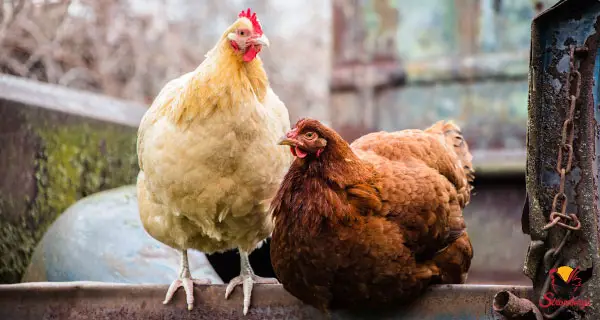
Frequently Asked Questions Of Why Do Chickens Try To Escape? This Is Why!
How Do Chickens Escape?
Chickens escape by finding holes in fences or by jumping over them.
Do Chickens Like To Escape?
Yes, chickens tend to escape as they have a natural instinct for exploration.
Why Does My Chicken Run Away From Me?
Chickens may run away from you due to fear or protection instincts, wanting to avoid potential danger.
How Do I Stop My Chickens From Wandering Off?
To prevent chickens from wandering off, use these effective strategies: 1. Use secure fencing to create an enclosed area for your chickens. 2. Regularly check and reinforce your fence for any gaps or weaknesses. 3. Provide enough space, food, and water to keep your chickens content and less likely to wander.
4. Consider using chicken coops or mobile pens to limit their roaming range.
Conclusion
Understanding why chickens try to escape can help us create safer and happier environments for our feathered friends. By examining their natural instincts, we can identify specific reasons that may lead to escape attempts, such as seeking better food, water, or shelter, or trying to establish territory.
By addressing these needs through proper housing, nutrition, and socialization, we can help prevent chickens from feeling the need to escape. Additionally, ensuring adequate space, providing mental stimulation, and minimizing stressors can also contribute to a more contented flock less likely to attempt escape.
Finally, building strong and secure fences and regularly inspecting enclosures for potential vulnerabilities can further enhance the safety and security of our chickens. By applying these insights and implementing proper management techniques, we can create an environment where chickens are less likely to try to escape and are able to lead happier and more fulfilling lives.

